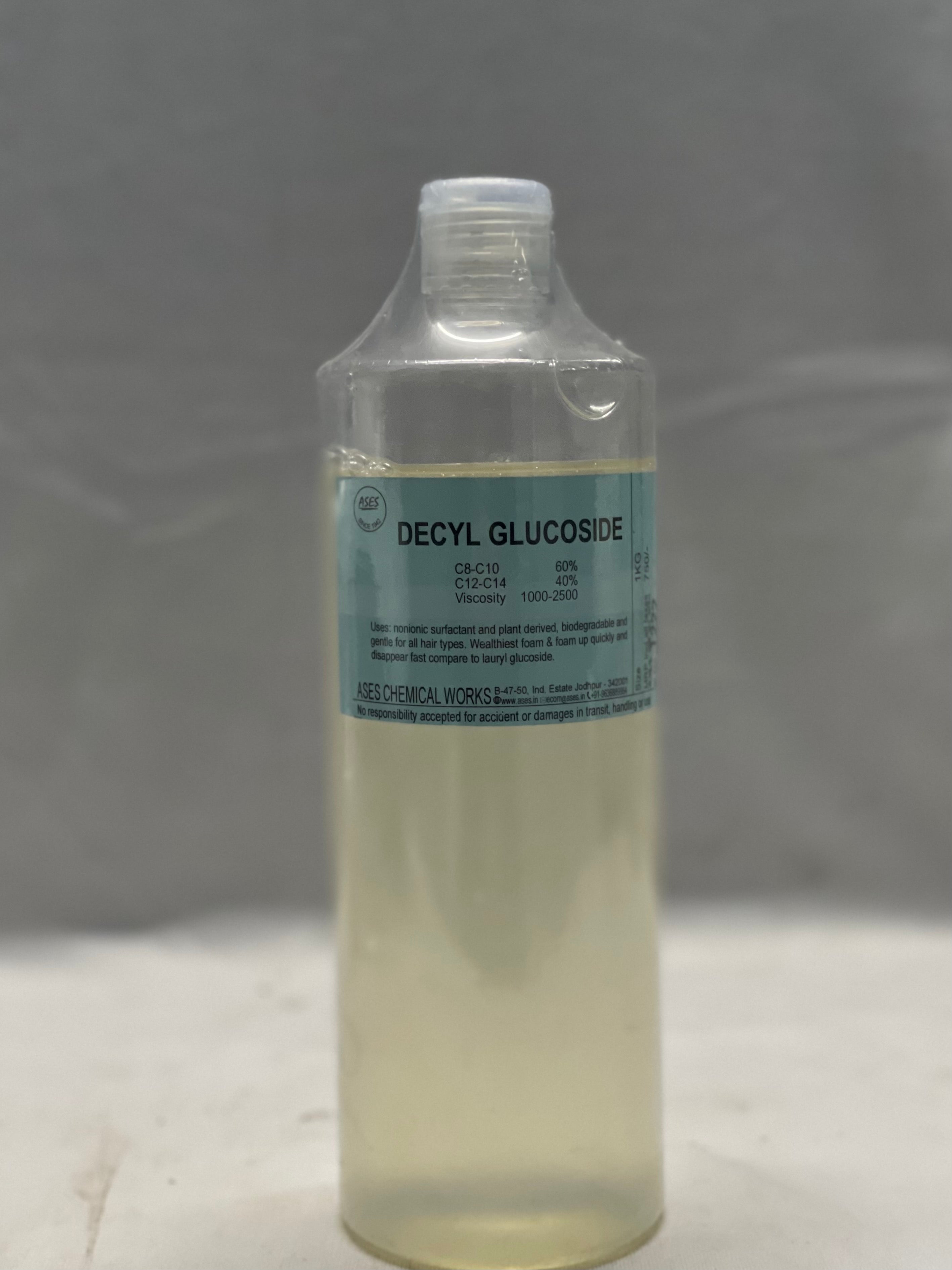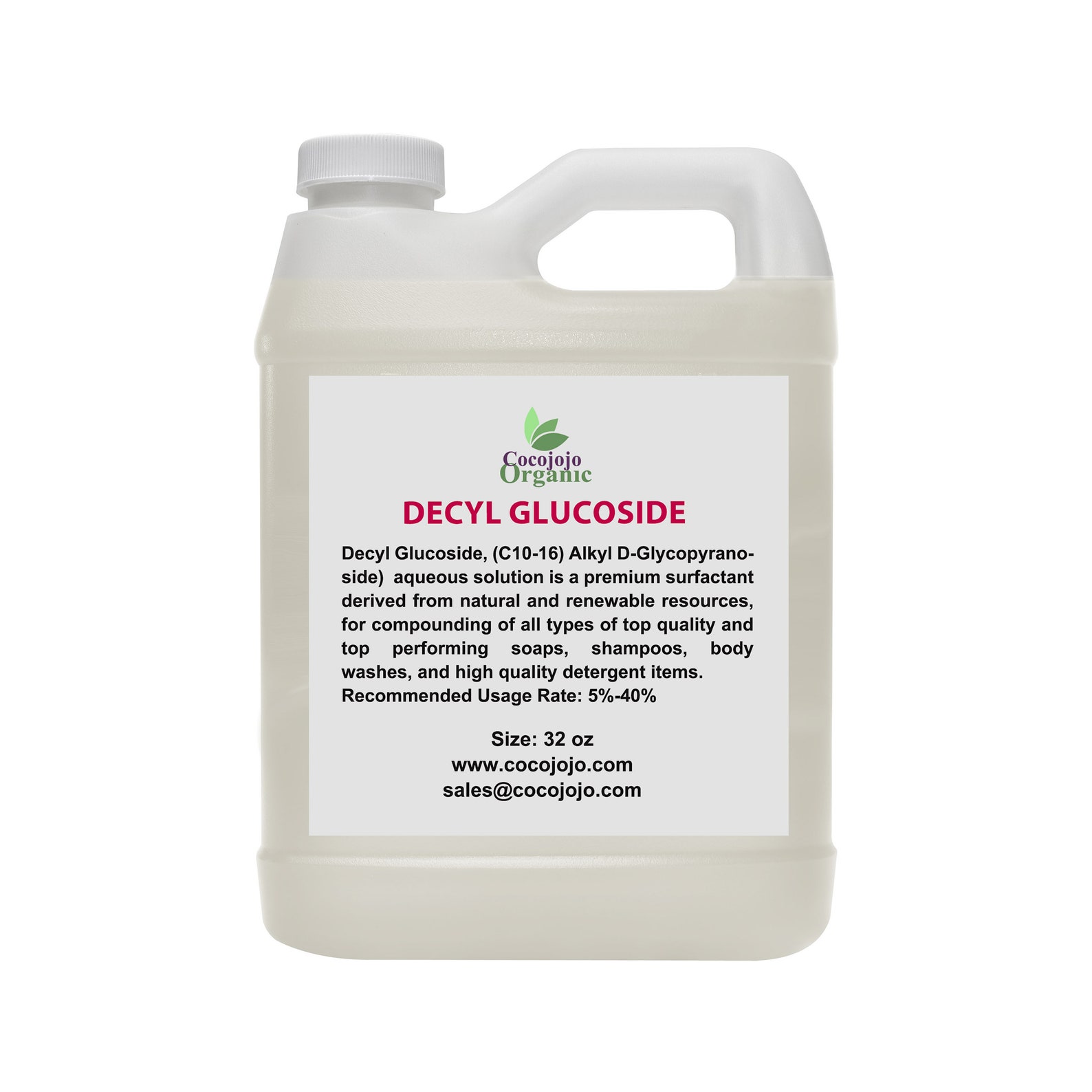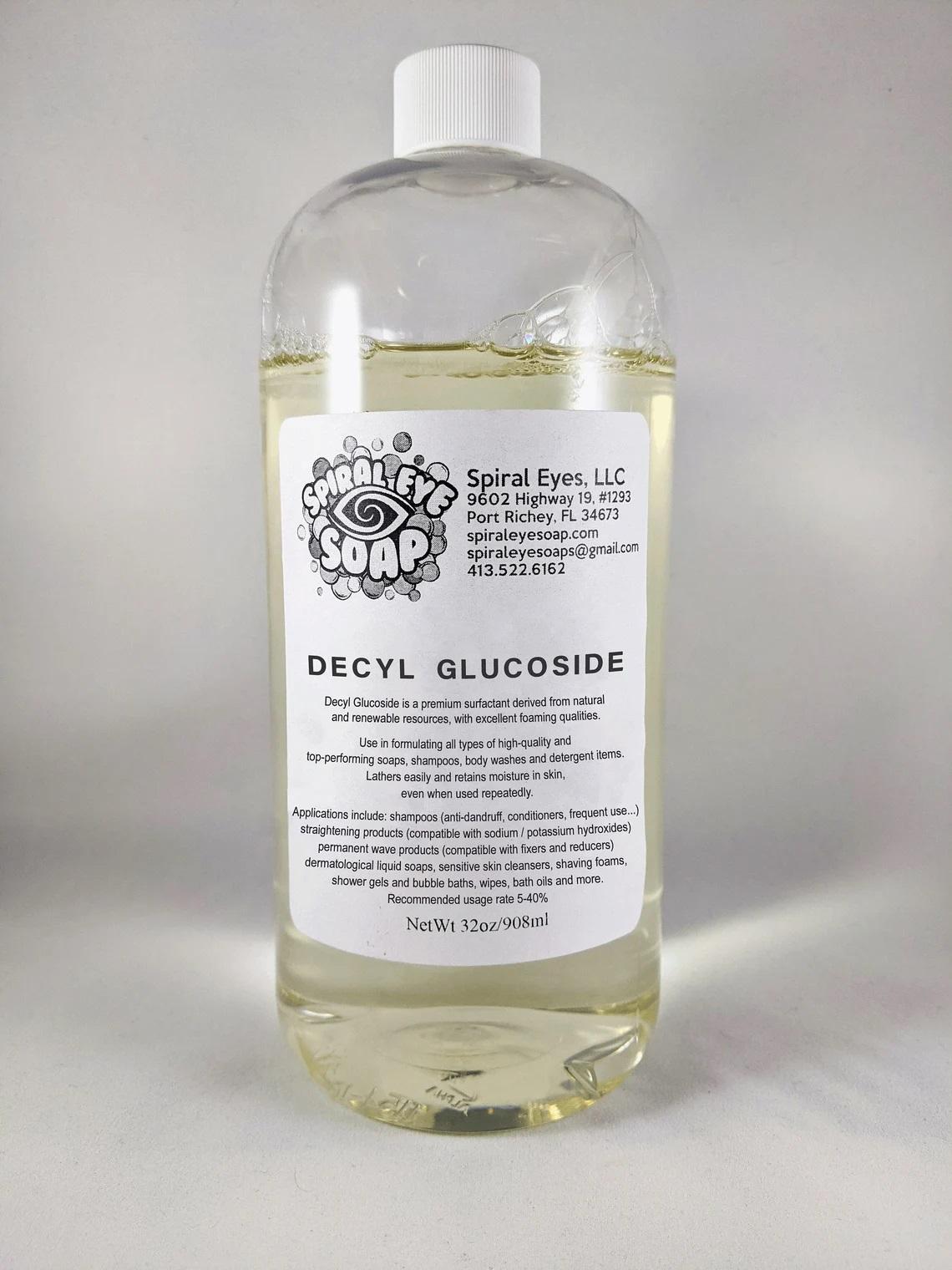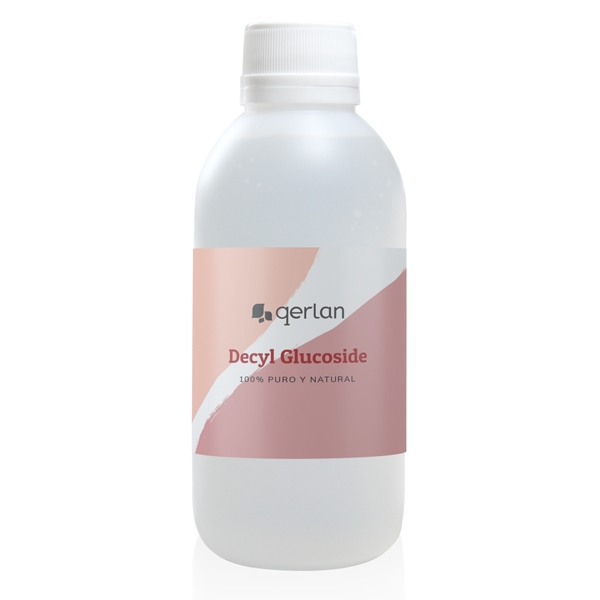Compra Decy Glucoside para Cosmética Natural Taller Orgánico

Decyl Glucoside New Directions UK
The general decyl glucoside structure is shown in Figure 1. Decyl glucoside may be monomeric or polymeric, but the International Nomenclature Cosmetic Ingredient name will still be decyl glucoside. "Poly" will be generically used throughout the rest of this report to refer to di-, tri-, oligo-, polyglucosides and mixtures thereof.

Decyl Glucoside New Directions UK
Decyl glucoside is a mild non-ionic surfactant used in cosmetic formularies, [1] including baby shampoo and in products for individuals with a sensitive skin. Many natural personal care companies use this cleanser because it is plant-derived, biodegradable, and gentle for all hair types. Decyl glucoside was invented by Robert Prairie in 1934.

Decyl glucoside a natural surfactant which is biodegradable
Is Decyl Glucoside Safe? The Cosmetics Ingredient Review has deemed the ingredient safe for use in cosmetic products. Due to its connection to contact dermatitis, the EWG has granted decyl glucoside a score of "2".[6] Whole Foods has deemed the ingredient as acceptable as a surfactant in its body care quality standards.[6]

Buy Decyl Glucoside Natural Surfactant Bulk Gallon Size Natural, Derived, NonGMO
Decyl Glucoside is a type of surfactant that works as a solubilizer, emulsifier, and a foaming detergent. It's a popular form of alkyl polyglucoside, which is a relatively new type of surfactant made from reacting fatty alcohol with cornstarch. This reaction creates a highly biodegradable solution that is tolerant to electrolytes.

Decyl Glucoside Decyl Glucoside in Skincare Decyl Glucoside Benefits aseschem
Decyl Glucoside is a plant-derived substance made from fats, alcohol, and sugars found in palm kernel oils, corn sugars, and coconut. In chemical terms, it is an alkyl glucoside, made from the reaction of glucose from the cornstarch with a fatty alcohol, also called capric alcohol or decyl alcohol, found in palm oils and coconuts.

Buy Decyl Glucoside Natural Surfactant Bulk 32 oz Size Natural, Plant Derived, NonGMO
Decyl glucoside is one of the safest, gentlest, and most non-irritating surfactants for all skin types. As previously mentioned, it is non-allergenic, non-drying, non-irritating, and EWG-rated "2". The Cosmetic Ingredient Review (CIR) Expert Panel assessed the safety of 19 alkyl glucosides as used in cosmetics.

Decyl Glucoside 500g Amazon.co.uk Grocery
Products Containing Decyl Glucoside Sort best to worst FILTERS Filter by Black-Owned Brands EWG VERIFIED® PRODUCT TYPE BRAND Boyzz Only No Nonsense Hair & Body Wash EWG VERIFIED Three Ships Superfruit Lactic + Multifruit 8% AHA Exfoliating Mask EWG VERIFIED Olivarrier Baby Organic Ground Top to Toe Wash EWG VERIFIED ATTITUDE

Ingredient Spotlight Decyl Glucoside in Hand Wash
Decyl Glucoside is one of 18 alkyl glucosides. It is a mild surfactant used in most of our products. It is made by the process of alcoholysis of glucose (made from corn starch) and a fatty alcohol decanol (made from coconuts) that is considered to be a "green" process by using natural and renewable sources.

Decyl Glucoside Plant Derived Surfactant for Cosmetic Etsy
Description. An anti-pigmentation cream with SPF50. Providing high protection against UVA, UVB, blue light and infrared-A rays, the Ultrasun Face Anti Pigmentation SPF50+ also works to prevent, brighten, and diminish existing and future skin pigmentation. Designed to work as a primer, moisturiser, and sun cream, the multi-purpose cream features.

Liquid Decyl Glucoside, For Industrial at Rs 250/kg in Thane ID 27005829048
What Is Decyl Glucoside?Decyl glucoside is a naturally-derived surfactant used in shampoos, body washes, cleansers and liquid soaps. Surfactants are a class of ingredient that helps to lift dirt and oil from the skin, allowing it to be rinsed away. Decyl glucoside also has the ability to produce a nice foam, giving it an enjoyable sensory. Continue reading "Decyl Glucoside: The Little Known.

Decyl Glucoside NonIonic Surfactant and Emulsifier Gel 8.82 oz Natural, A 7445001311343
EWG's Skin Deep® database gives you practical solutions to protect yourself and your family from everyday exposures to chemicals in personal care products. Know Your Environment. Protect Your Health. EWG Home EWG's Guide to Healthy Cleaning EWG's Food Scores Healthy Living App.

Decyl Glucoside Spiral Eyes Supplies
Moisturizing conditioners: Gentle conditioners will often have decyl-glucoside in it for its moisturizing properties, as well as its ability to keep the product's ingredients stable. Decyl-glucoside also helps the conditioner rinse out easily. Hair styling products: You will also find decyl-glucoside in hair styling products, including hair.

Decyl Glucoside » Cosmética em Foco
DECYL GLUCOSIDE can be found in 278 products. Evidence Health issue Level of Concern Source Causes severe skin burns and eye damage Only in: Oven Cleaner; Drain Opener/Clog Remover; Hard Water Stain Remover; Toilet Cleaner; Stove Top Cleaner; Household Cleaners some European Chemicals Agency (ECHA): GHS Data from ECHA Website

Decyl Glucoside Comprar Jabonarium Cosmética Natural
DECYL GLUCOSIDE. Restricted:EWG VERIFIED products cannot contain this ingredient without adequate substantiation. Asthma/Respiratory. No Data, Some Concern. Skin Allergies & Irritation. Some Concern. Developmental & Reproductive Toxicity. Low Concern.

Compra Decy Glucoside para Cosmética Natural Taller Orgánico
Decyl Glucoside only exists as a refined product. Strengths. Decyl Glucoside is a relatively easy to source "natural" surfactant with lovely lather. Weaknesses. It has a fairly high pH and isn't a great solubilizer; I tend to choose Caprylyl/Capryl Glucoside over the other glucosides. Alternatives & Substitutions.

Decyl Glucoside
A total of 24,097 patients were patch tested to decyl and/or lauryl glucoside; 470 (2.0%) patients were positive to 1 or both the glucosides. In the 2017-2018 cycle (when both were tested), there were 134 glucoside-positive patients (N = 4933, 2.7%); of these, 41.8% were positive to decyl glucoside alone, 26.1% were positive to lauryl glucoside alone, and 32.1% were positive to both (Fig 1).